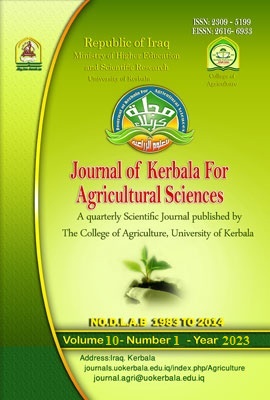Abstract
Cold plasma technology has developed in recent decades as a method of processing meat that functions as a bacteriostatic and bactericide, and it is used to treat meat as a non-thermal technique to preserve the sensory qualities of meat. Yet, one of the disadvantages of this ap-proach is lipid oxidation. The purpose of this research is to investi-gate the effect of aqueous grape seed extract at a (1%) concentration after spraying it onto meat (100 ml/kg) and then treating it with cold plasma (plasma jet) using argon gas at a frequency of 23 kHz, a volt-age of 150 kV, a distance of 2 cm, and a time of 5 minutes, as well as to demonstrate the extent of its effect on the sensory evaluation (penal test) of meat at 4 ℃ for 12 days. We separated 100 samples of minced beef into three groups. Group (1)- Control (Con), group (2)-Cold plasma (Cp), group (3)-Grape seeds extract (GSE), and group (4)-Cold plasma mixed Grape seed extract (CP+GSE): Each group has 25 samples, and all parameters were measured. In conclusion, up until the end of the storage period at 4 °C, an analysis of sensory quality revealed that the beef samples treated with GSE and Cp+GSE, respectively, had the highest panel test score
Keywords
Aqueous Grape Seeds Extract
Cold Plasma
Sensory Quality of Minced Beef Introduction P
